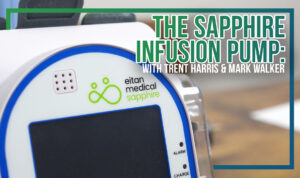
The Sapphire Infusion Pump: With Trent Harris & Mark Walker
The Sapphire Multi-therapy Infusion Pump is a highly accurate infusion pump for EMS that delivers medications to patients precisely. This IV pump has become increasingly popular for emergency medical in recent years because of its simplicity, ease of use, durability, and accuracy. The Sapphire pump is used by medical professionals in various settings, from pre-hospital […]
Read More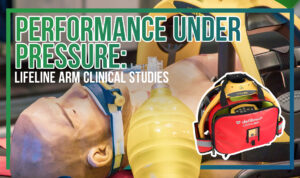
Performance Under Pressure: The Defibtech ARM
At Master Medical Equipment, we like to show off the capabilities of life-saving equipment and clinical evidence showing their effectiveness. Today we are highlighting a clinical study showcasing the effectiveness of the Defibtech Lifeline ARM. The Lifeline ARM is a product in the EMS industry gaining popularity for its ease of use, consistent quality compressions, […]
Read More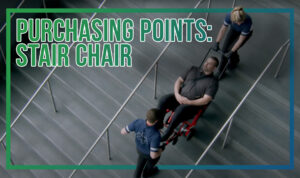
Stair Chairs: Purchasing Points
Stair Chairs are an instrumental piece of modern-day EMS equipment. They help Medics move alert patients up or down stairs while secured to the chair. The two prominent companies that manufacture stair chairs for the US EMS market are FERNO & STRYKER There are three main types of stair chairs: Manual chair without tracks Manual […]
Read More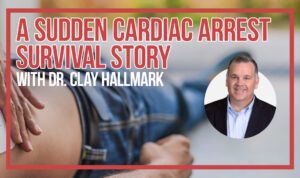
Dr. Clay Hallmark- An SCA Survival Story
Dr. Clay Hallmark is the Senior Pastor at First Baptist Lexington, TN, and last year was the first unanimously re-elected President of the Tennessee Baptist Convention since the 1940s. Dr. Hallmark moved his family to Lexington in 2016 and has faithfully served his church and local community for the last seven years. The community became […]
Read More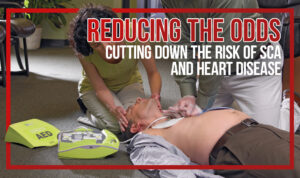
Reducing The Odds – Cutting Down The Risk of SCA & Heart Disease
It’s no surprise to anyone in the medical industry that heart disease is one of the leading causes of death in the United States. Cardiac emergencies can occur at any time, with little-to-no warning, and can have dire consequences in a matter of minutes. Sometimes the issues are genetic; other times, there is no track […]
Read More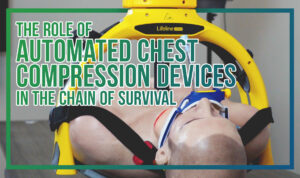
The Role of Automated Compressions in the Chain of Survival
According to the American Heart Association, about 356,000 Sudden Cardiac Arrest (SCA) cases happen outside of the hospital in the U.S., and about 90% of these cases result in death. The American Heart Association has developed a chain of survival that includes six crucial steps to saving someone’s life. 1) Activation of Emergency Response 2) […]
Read More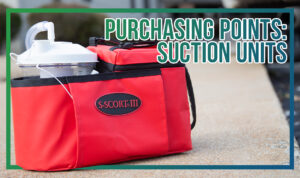
Suction Units: Purchasing Points
At MME, we aim to provide you the tools and resources to make the best equipment decisions for your practice. We’ve compiled our favorite suction unit options and want to highlight the features that make them unique. So what is the purpose of Suction Units? In general, suction units in EMS mitigate retained or excessive […]
Read More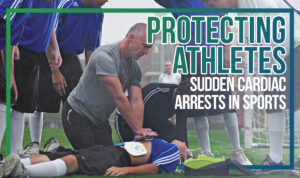
Protecting the Athletes: Sudden Cardiac Arrest in Sports
In light of Damar Hamlin’s survival of a Sudden Cardiac Arrest (specifically, Commotio Cordis), now more than ever is the time to speak on the need for lifesaving equipment in sports settings. Commotio Cordis is very rare — in fact, just over 200 cases have been reported to the U.S. Commotio Cordis registry since the […]
Read More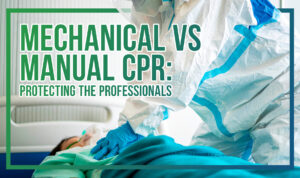
Mechanical vs Manual Compressions: Protecting the Professionals
A 2020 study explored a less-intuitive but very real complication medical professionals face with the COVID-19 pandemic, specifically, the challenge of performing effective chest compressions while staying properly protected. Even a few years after the initial COVID-19 waves, we can still draw benefits from this study about Automated Chest Compression Devices (ACCDs). This study focused […]
Read More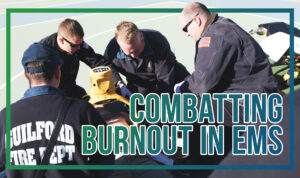
Combatting Burnout in EMS
The past three years have taken a toll on the Emergency Medical industry. Paramedics and EMTs have been required to respond to a higher volume of emergencies while facing staffing challenges and not receiving the funds or attention required to maintain personnel and equipment. According to the EMS Trend Report from EMS1, the number one […]
Read More